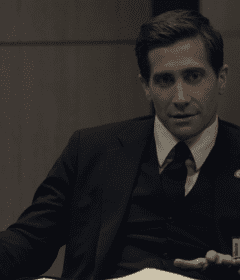Netflix Documentary Icarus
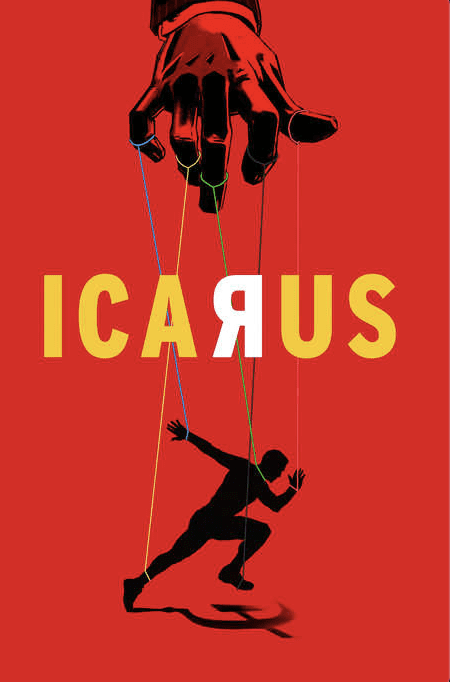
The Netflix Documentary Icarus is a 2017 American film by Bryan Fogel.
It chronicles Fogel’s exploration of the option of doping to win an amateur cycling race and happening upon a major international doping scandal when he asks for the help of Grigory Rodchenkov, the head of the Russian anti-doping laboratory.
The Netflix Documentary Icarus premiered at Sundance Film Festival on January 20, 2017, and was awarded the U.S. Documentary Special Jury Award (Orwell Award).
Netflix acquired the distribution rights and released Icarus globally on August 4, 2017.
At the 90th Academy Awards, the Icarus won the Academy Award for Best Documentary Feature.
In an interview with The Atlantic playwright and actor Bryan Fogel said he set out to make the Netflix Documentary Icarus, with one goal: to examine how easy it is to get away with doping in professional sport.
When Bryan Fogel sets out to uncover the truth about doping in sports, a chance meeting with a Russian scientist transforms his story from a personal experiment into a geopolitical thriller involving dirty urine, unexplained death and Olympic Gold-exposing the biggest scandal in sports history.
An enthusiastic amateur cyclist, Fogel was disturbed by the fact that someone like Lance Armstrong could cheat for so many years and never fail a single drug test. “Originally,” he explains in the film, “the idea I had was to prove the system in place to test athletes was bullshit.”
Netflix Documentary Icarus – Cast

In the Netflix Documentary Icarus, an obscure Los Angeles filmmaker accidentally captures how one of the biggest international scandals in sporting history came to light.
The documentary has lifted the curtain on Russia’s dirtiest little secret: Corruption at the top has metastasized throughout its society and onto its ice rinks, ski slopes, and gymnasia. Through a state-sponsored program, the Russians cheat and they have been caught.
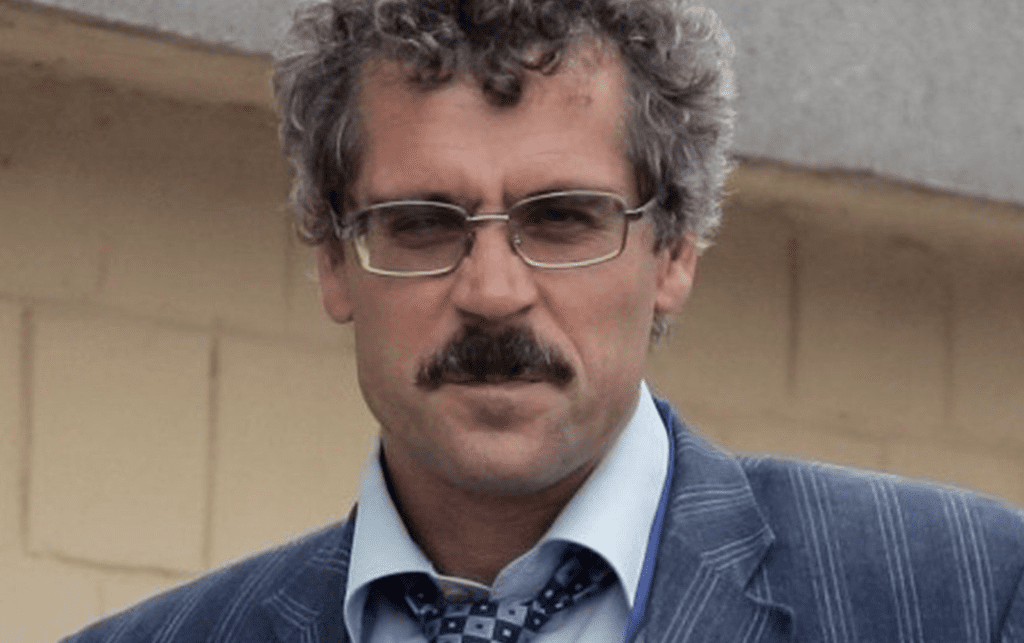
Russian Doping: Who is Whistleblower Grigory Rodchenkov
Grigory Rodchenkov, who is the director of Moscow’s anti-doping center when Fogel first meets him via Skype in 2014.
Rodchenkov is eccentric, expressive, frequently shirtless, and immensely charming scientist, husband, friend and dog lover.
Fogel uses George Orwell’s Nineteen Eighty-Four as a framing device to argue that it’s the former—Rodchenkov recalls reading the book in his 30s after it was no longer banned in Russia, and being struck by its scenes of government-sanctioned destruction of truth.
Rodchenkov was the mastermind for a state-sanctioned doping scheme at the 2014 Sochi Winter Olympics that earned the Russians thirteen gold medals.
Not surprisingly, during filming Russian investigators begin to close in on him and he resigns from the lab. He fears for his life.
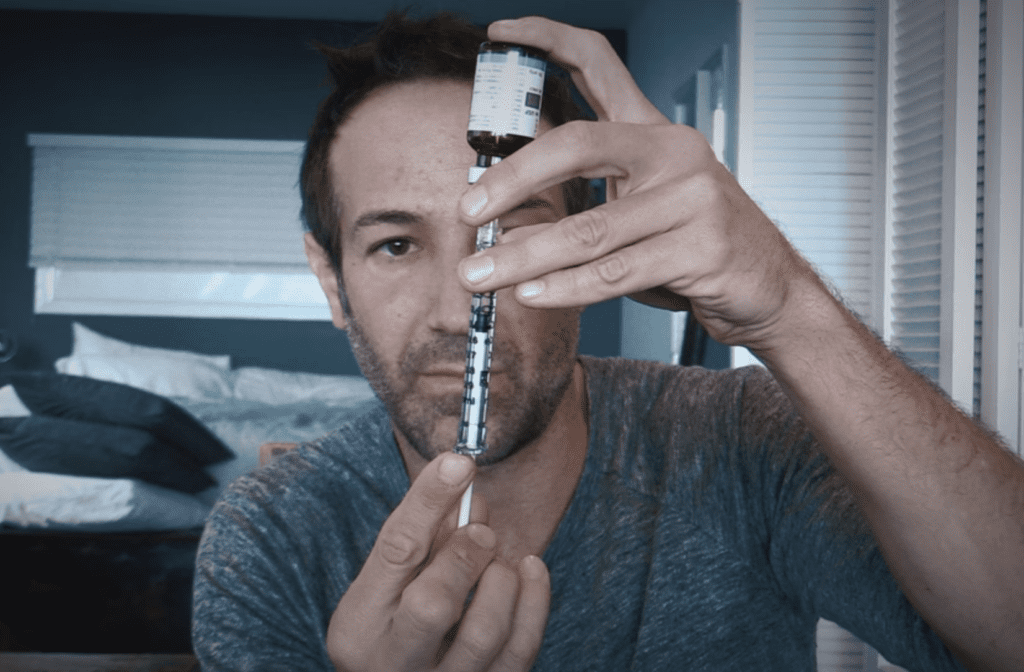
Bryan Fogel – Amateur Cyclist, Actor, Filmmaker
The first time Fogel competed, drug-free, he came in 14th out of 440. Fogel wants to do better and plans to use the Haute Route to prove that he could dope and get away with it. Therefore, pretty much any athlete could dope and get away with it.
The film opens by focusing on Brian Fogel’s efforts to game the system while competing in the Haute Route, an annual event in that Alps that he describes as “the single hardest amateur bike race in the world.”
When Bryan sets out to uncover the truth about doping in sports, a chance meeting with a Russian scientist transforms his story from a personal experiment into a geopolitical thriller.
Fogel becomes Rodchenkov’s advocate and defender, meeting with lawyers, finding him housing, and enabling the Russian’s efforts to disperse the significant evidence he’s gathered.
Netflix Documentary Icarus – Doping in Professional Sports
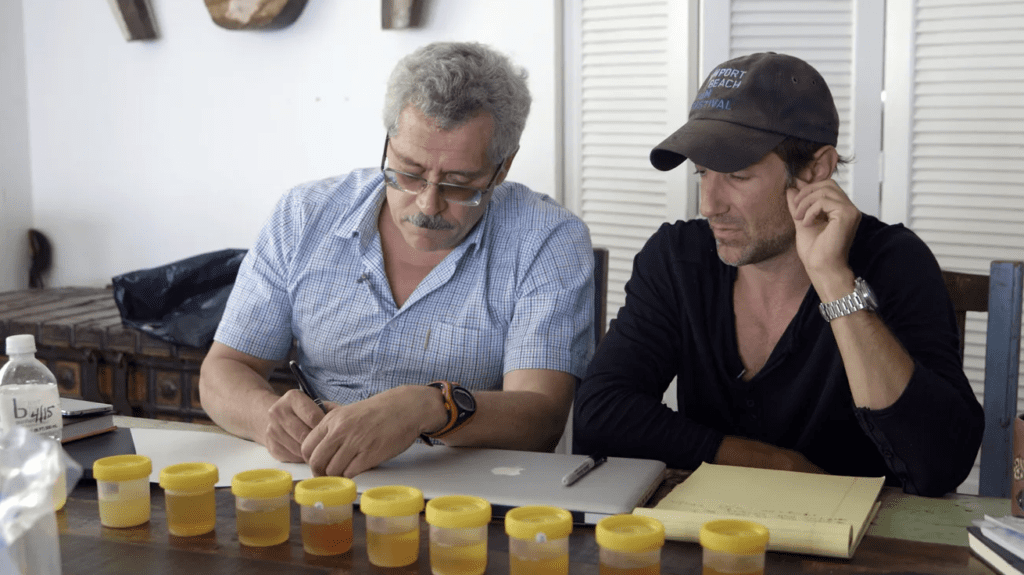
Fogel & Rodchenkov become friends and Rodchenkov reveals that Russia has a state-sponsored Olympic doping program that he oversees.
After an anti-doping scientist at UCLA backed out of the documentary, Fogel was referred to Dr. Grigory Rodchenkov, head of Russia’s anti-doping program, to help administer hormone injections and smuggle his urine samples to Russia for testing.
Rodchenkov is an endearing and offbeat character who shares a love for Fogel’s dog over Skype and has a strangely encyclopedic grasp of doping itself—what Fogel should take, and how he’ll feel as he starts his new regime.
Rodchenkov creates a plan for Fogel to take banned performance-enhancing drugs in a way that will evade detection from drug-testing, helping Fogel’s experiment to prove that the current way athletes are tested for drugs is insufficient. The doping scheme includes prescription steroids and hormones issued by an anti-aging doctor, and fairly graphic footage of Fogel injecting himself daily.
When allegations emerge in the international media over the possible existence of such a program, Fogel realizes that Rodchenkov is in danger of being “silenced” by the Russian government and has him flown to Los Angeles for his protection. Using Rodchenkov’s knowledge of the doping program, they speak to the U.S. Department of Justice as well as the New York Times, alleging that Russia has conspired to cheat in the Olympics for decades, and he was hired to ramp up the operation after the Russian team’s embarrassing performance in the 2010 Winter Olympics in Vancouver.
On camera, Rodchenkov testifies that at the 2014 Winter Olympics in Sochi, with the help of the Federal Security Service, he and his team switched steroid-tainted urine of the Russian national team with clean samples, evading positive detection. Dr. Rodchenkov provides spreadsheets, discs, e-mails, and more incriminating evidence of Russian involvement, forcing the World Anti-Doping Agency and the International Olympic Committee to investigate.
But their relationship took a bizarre turn in November 2015, when news reports alleged that Rodchenkov was a key figure in Russia’s state-sponsored doping program during the 2014 Winter Olympics in Sochi. Footage includes illustrations as to how the scam at Sochi was accomplished. Compartments with double doors allowed clean urine samples obtained weeks before to be swapped for tainted ones during the Games. There are also photos and footage of officials all the way up to Putin’s inner circle who are involved directly, according to Rodchenkov.
Fearing for his life, Rodchenkov fled to the U.S. with Fogel’s help and confessed on camera that he oversaw the swapping out of hundreds of athletes’ urine samples during the Sochi games.
After WADA’s independent investigation confirms Rodchenkov’s claims, U.S. Law Enforcement places him in protective custody. Rodchenkov’s lawyer, Jim Walden, appears briefly in the film describing the threats to Rodchenkov’s life and the suspicious deaths of two of Rodchenkov’s associates.
The film ends stating that the Russian government continues to deny it had any involvement with the program and that Rodchenkov remains in protective custody. Putin claims that Russia never had a doping program but testimony, emails, and Rodchenkov’s meticulous records of each Russian athlete show otherwise.
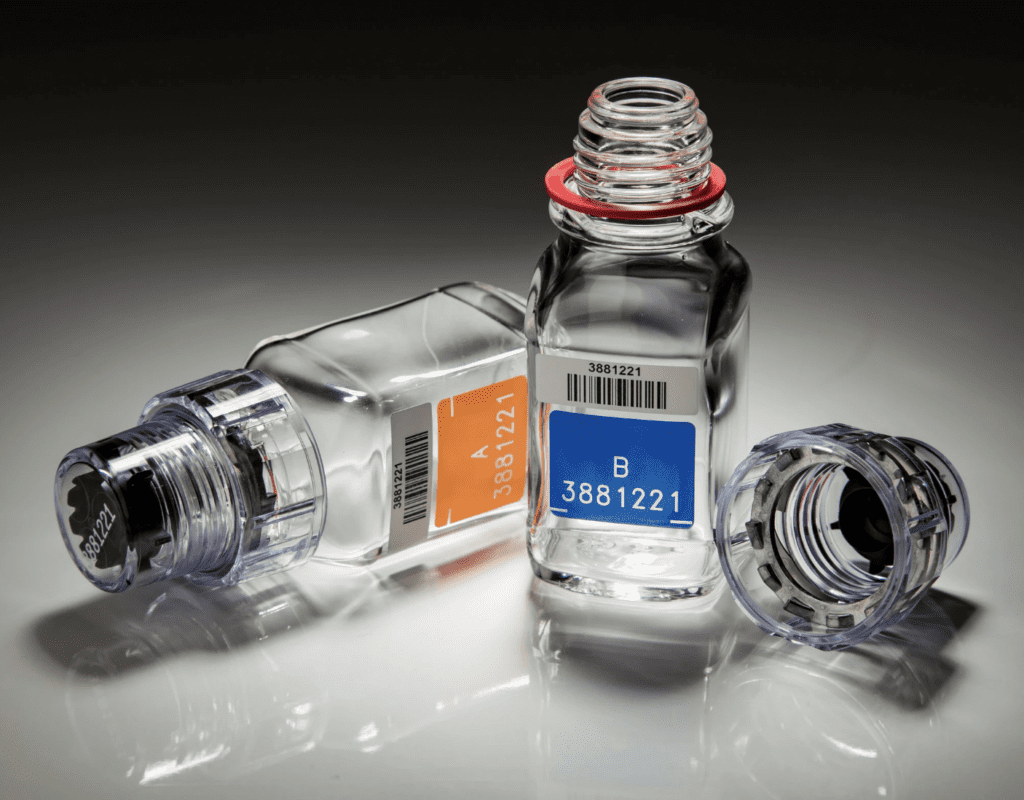
Alleged Russian Doping Operation at Sochi
Mr Rodchenko said he had created a cocktail of three anabolic steroids to be consumed with alcohol that helped athletes recover quickly from tough training regimes to be in peak condition for competition races.
Mr Rodchenko said the Russian authorities appointed an intelligence officer to his laboratory to gain information about what happened to the urine samples taken from athletes, which were contained inside self-locking glass bottles produced by the Swiss company Berlinger.
One day the intelligence officer presented Mr Rodchenkov with an open bottle, a vital part of the doping that he alleges took place during the Sochi Games.
Mr Rodchenko said that the plan required Russian athletes to take photos of the serial numbers of glass containers with their urine in and texted them to the Russian sports ministry.
Each night, Mr Rodchenkov went to a room adjacent to the room containing the samples. Then, a colleague would hand the samples through a small hole in the wall and he destroyed the urine that would have shown traces of steroid use and replaced it with clean urine taken from the athletes months earlier.
A total of about 100 urine samples were falsified in this way, he said.
Netflix Documentary Icarus – The Impact of Doping by Sport & By Country
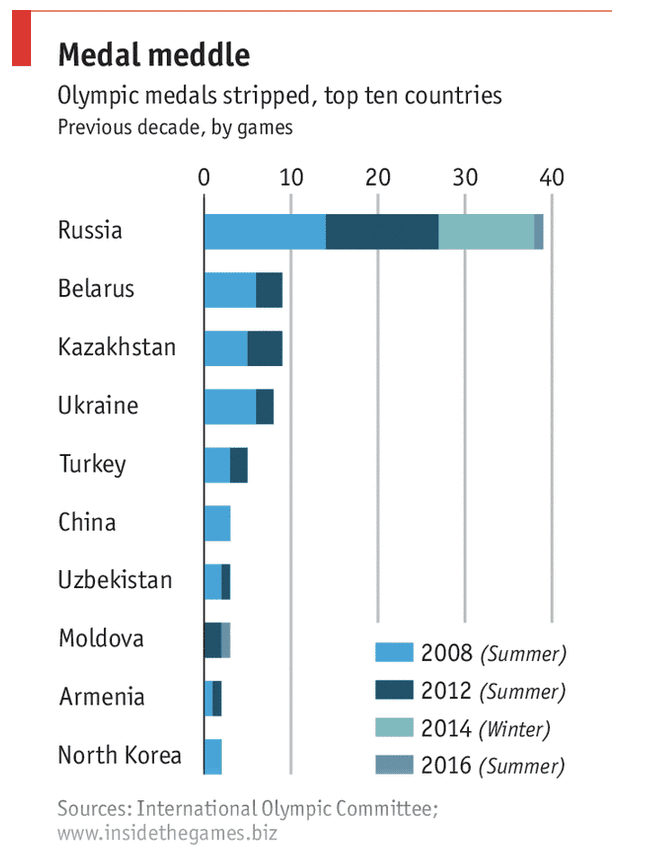
Russia’s National Anti-Doping Laboratory
In the Netflix Documentary Icarus, Grigory Rodchenkov claimed he doped dozens of athletes before the 2014 Winter Olympics, which were held in Sochi, Russia.
Rodchenkov – described by the Kremlin as a “scandalous” former official – also alleged he had been helped by the Russian secret service, the FSB.
He claimed they had worked out how to open and reseal supposedly tamper-proof bottles that were used for storing urine samples so the contents could be replaced with “clean” urine.
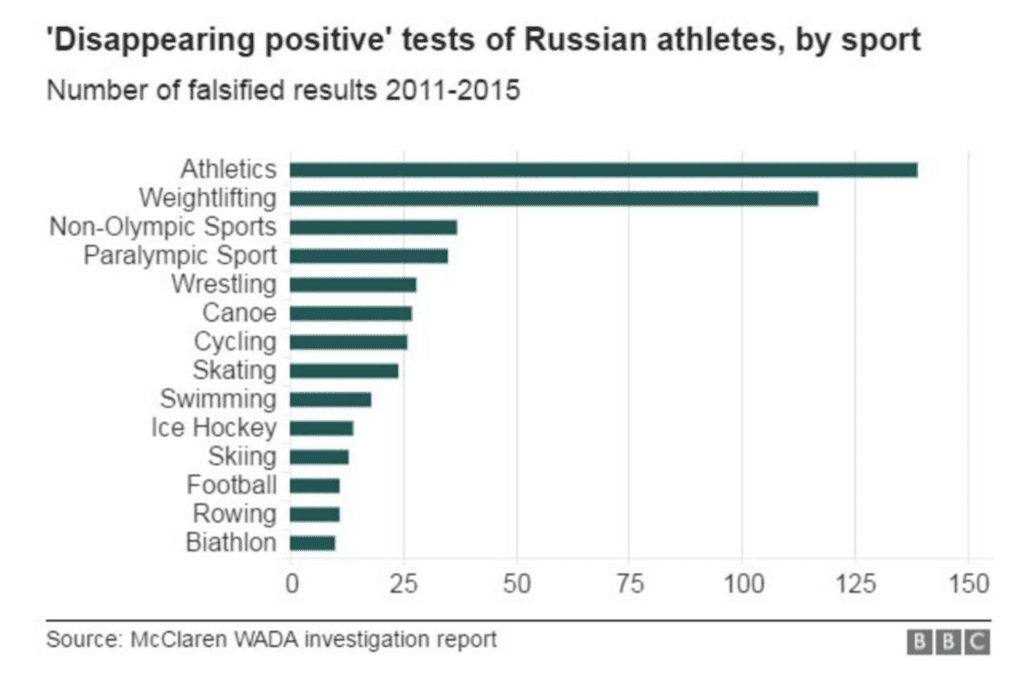
Russia State-Sponsored Doping Across Majority of Olympic Sports
In the Netflix Documentary Icarus, Grigory Rodchenkov explains that doping is a culture across the country and that almost every athlete, in every sport, indulges in constant, ongoing chemical enhancements.
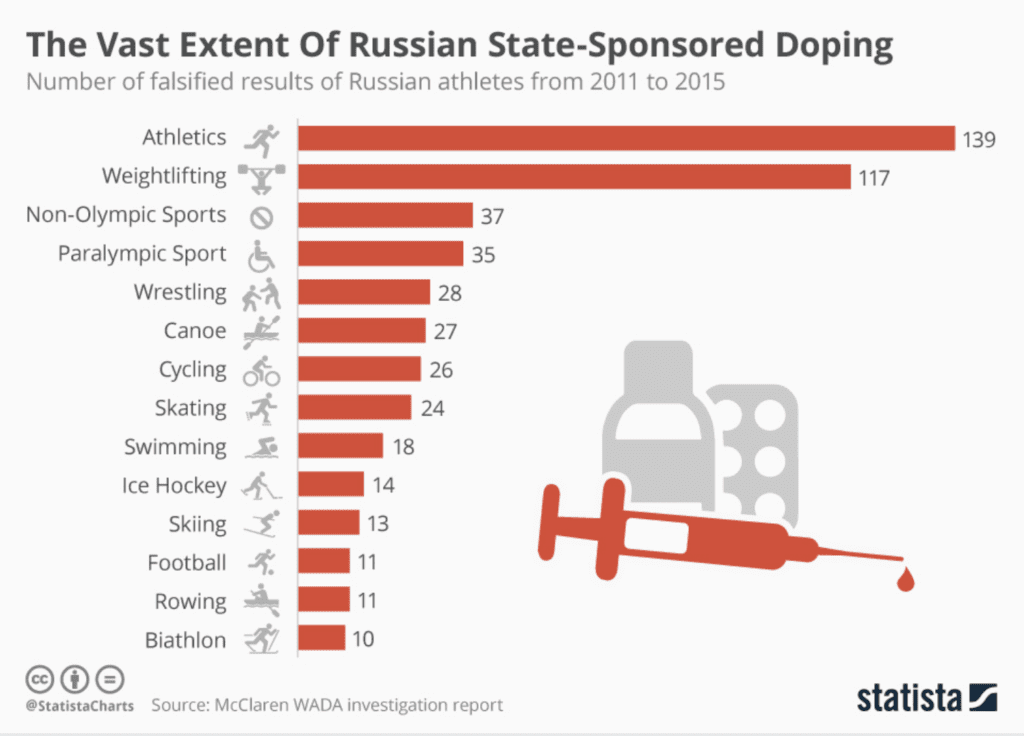
The Vast Extent Of Russia’s State Sponsored Doping Scandal
In the Netflix Documentary Icarus, Grigory Rodchenkov claims top sports officials and leading intelligence services were involved in a doping program which ran for four years and involved hundreds of positive drugs tests being hidden.
The doping program covered most summer and winter Olympic sports with the number of falsified results from Russian athletes visualized on the graphic to the left.
Number of Stripped Medals at the Summer Olympics by Country From 1984 to 2020
A total of 52 Olympic medals (20 gold, 17 silver, 15 bronze) have been retroactively stripped from athletes relating to athletic events at the Summer Games.
All of these were due to doping offenses, and Russia is the chief offender; being stripped of 22 medals in athletic events.
The U.S. and Belarus both been stripped of seven medals each, with five of the U.S.’ seven medals taken from just one athlete (although her teammates in the relay events have retained their records and medals).
Of these 52 medals, female athletes have been stripped of 36, which is more than double the number of those taken from male athletes. The events with the highest rate of offense tend to be throwing events and sprint-relays.
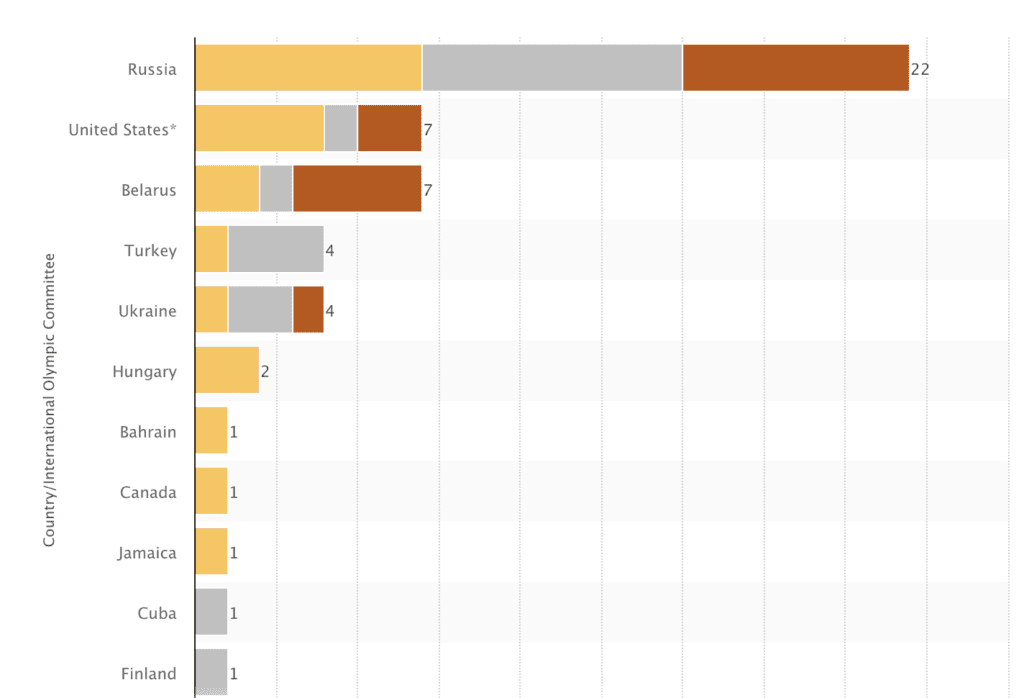
Grigory Rodchenkov was once viewed more favorably by the Russian authorities. Russia won most medals at the Sochi Games and he was awarded a medal afterwards.
In his interview with the New York Times, Rodchenko said doping athletes was part of his job and his laboratory would have stopped receiving funding if he had not done it.
Rodchenkov had previously been investigated in Russia for trafficking in performance-enhancing drugs but said he was not jailed because the Russian authorities had earmarked him to dope their athletes at the Sochi Games.
Russian state-owned news agency TASS reported that sports minister Pavel Kolobkov said the investigative committee found no evidence to support the state operated a doping system. That committee seeks Rodchenkov’s extradition from the United States, where he is in witness protection.
Despite assertions from Russian officials that no system existed, “empirical evidence is totally to the contrary,” IOC member Dick Pound said, adding, “so I think what we’re seeing in the Russian press is for domestic consumption.”



